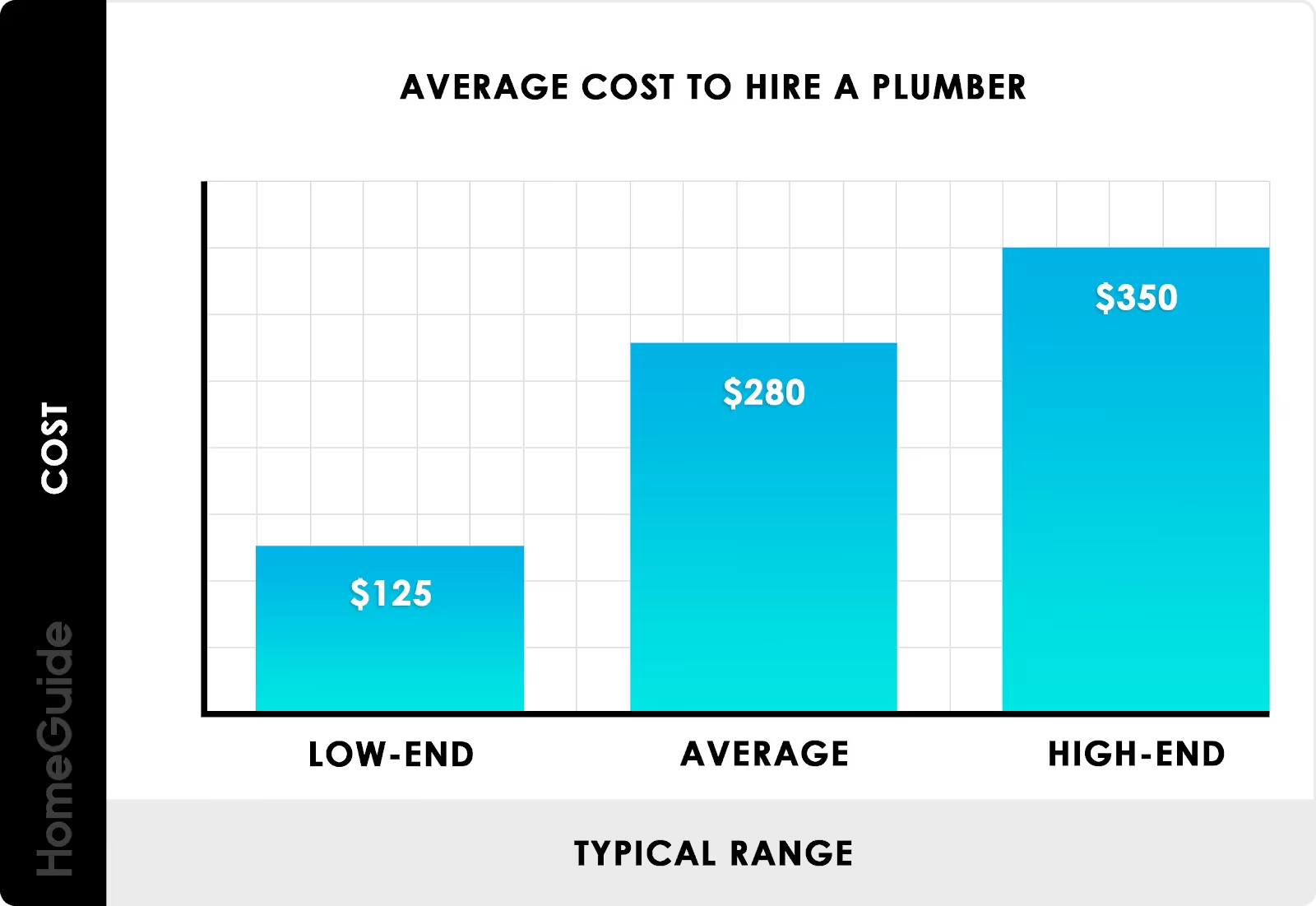How to Get MORE Plumbing Leads [12 Proven Strategies]
How to Get MORE Plumbing Leads [12 Proven Strategies]

With 132,000 plumbing businesses fighting for attention across the United States, the real challenge isn't getting your phone to ring. It's getting the right people to call. Quality plumbing leads pay premium rates and don't waste your time shopping around.
The opportunity is massive. The U.S. plumbing market hits $158.6 billion, while the global industry pulled in $4.56 trillion in revenue. But here's what's interesting: the contractors making real money aren't the ones chasing every lead. They're the ones who've figured out how to attract customers who pay well and don't waste time.
Why Most Plumbing Leads Fail
A plumbing lead is someone who needs your services and might actually hire you. Sounds simple, but there's more to it.
Not all leads are created equal. Emergency calls pay premium rates because people don't shop around when their basement's flooding. Scheduled maintenance calls let you plan your day but usually pay standard rates. Commercial jobs can be worth thousands, while fixing a leaky faucet might barely cover your gas money.

The real insight? Homeowners pay an average of $90 per hour for plumbing services. One good customer relationship can be worth thousands over time. That's why smart contractors focus on getting fewer, better leads instead of chasing everything that moves.
12 Ways to Get Better Customers
Here are 12 effective lead generation tactics that get better customers calling you:
1. Dominate Local Search
When someone's toilet won't stop running at 2 AM, they're not browsing Yellow Pages. They're googling "plumber near me" and calling whoever shows up first. Following effective local SEO practices helps ensure you appear at the top of search results when it matters most.
Your Google Business Profile needs to be complete with real photos, accurate hours, and your actual phone number. For more Google Business Profile insights, make sure you understand what people are looking for when they need a plumber.
To optimize your local search visibility, use local keywords that help people find you for specific problems like "water heater repair" or "drain cleaning." Think about what people type when they're panicking about water damage.
2. Build Your Reputation
Here's something that'll surprise you: 68% of customers check reviews before calling, but 40% won't even consider you if you've got bad ones. Reviews aren't just nice to have anymore. They're make or break.
The trick isn't getting tons of reviews. It's getting them consistently across Google, Yelp, and Facebook. To boost Google reviews, ask every happy customer to leave one. When someone complains online, respond professionally and offer to fix whatever went wrong. It's important to manage your business reviews actively to maintain a strong online reputation.
3. Share Your Expertise
Ever notice how the busiest plumbers are the ones people trust most? There's a reason for that.
Writing about common plumbing problems positions you as the expert people call when things get serious. Seasonal content works great. Winter pipe protection before the cold hits, spring maintenance when people start thinking about home projects. The goal isn't to help people avoid calling you. It's to be the first person they think of when DIY isn't enough.
4. Use Social Media Right
Social media for plumbers isn't about going viral. It's about showing your work and connecting with your community.
Instagram works great for before-and-after photos that show what you can do. Facebook groups let you help neighbors with simple questions and build relationships. LinkedIn connects you with property managers and contractors who need reliable partners. Just be helpful and professional.
5. Invest in Paid Ads
Paid advertising gets you in front of people right when they need help. Google Ads work especially well for emergency keywords because people aren't price shopping when their pipes burst.
Local Services Ads put a "Google Screened" badge next to your name and show up above regular search results. Budget matters here. Emergency repair keywords cost more but convert better because people need help now, not next week.
6. Build Profitable Relationships
Here's something most plumbers don't realize: 77% of jobs come from referrals or repeat customers. The best marketing you can do is being really good at your job.
But you can speed this up. Real estate agents see plumbing problems during inspections. General contractors need reliable plumbers for renovations. Property managers deal with maintenance issues constantly. Build relationships with these people and they'll send you steady work.
7. Optimize Your Website
Your website has one job: turn visitors into phone calls. Landing pages that focus on specific services work better than generic "we do everything" pages.
People want to know you're licensed, insured, and legitimate before they'll call. Show your certifications prominently. Make sure your phone number is huge and clickable on mobile devices. Most plumbing searches happen on phones during emergencies.
8. Master Lead Platforms
HomeAdvisor, Angie's List, and Thumbtack connect you with people actively looking for plumbers. The downside? You're competing with other contractors for the same customers.
These platforms work best when you respond fast and have great reviews. Exclusive leads cost more but give you better odds. Shared leads are cheaper but you're racing against other plumbers to get there first.
9. Create Engaging Videos
Video builds trust faster than anything else. People want to see who they're hiring and how you work.
How-to videos for common problems show your expertise while making it clear when people need professional help. Equipment demonstrations prove you know what you're doing. Customer testimonials let other people sell for you. YouTube SEO helps these videos show up when people search for solutions.
10. Email Marketing Done Right
Email marketing keeps you top of mind without being pushy. Seasonal maintenance reminders work great because they provide value while generating repeat business.
Send different content to different customers. Homeowners want tips for preventing problems. Property managers want to know about bulk pricing and emergency services. Educational newsletters position you as the expert people call when problems happen.
11. Offer Valuable Lead Magnets
People will trade their email address for something useful. Maintenance checklists help homeowners prevent expensive problems while showing your expertise.
Emergency contact cards with your after-hours number provide immediate value. Seasonal preparation guides address predictable concerns like winterizing pipes. Make the value obvious and the signup simple.
12. Never Miss Calls
Here's where most plumbers lose money: they miss calls because they're working. When someone's dealing with a plumbing emergency, they don't leave voicemails—they call the next contractor on the list. A dedicated plumbing answering service solves this problem by ensuring every call is answered.
The AI Receptionist from Smith.ai, combining AI and human receptionists, solves this problem by answering every call, even when you're busy. It screens leads and schedules appointments automatically, so you're only talking to people who actually need your services. Emergency calls especially can't wait. That's why having a 24/7 emergency answering service is crucial.
Convert Calls to Jobs
Getting people to call is only half the battle. The real money comes from converting those calls into jobs.
Not every caller is worth your time. Emergency situations need immediate response, but planned installations let you take a consultative approach that justifies higher prices. 66% of customers expect you to understand their specific needs, which means asking the right questions upfront.
This is where the AI Receptionist from Smith.ai really helps. It handles the initial conversation, figures out what customers need, and schedules appointments with qualified prospects. Understanding the advantages of AI receptionists means you spend your time doing actual plumbing work instead of playing phone tag with people who might not even hire you.
Track These Key Metrics
You can't improve what you don't measure. Different lead sources have different costs and conversion rates, so you need to know which ones actually make you money.
Cost per lead varies dramatically between channels. Organic search usually costs less than paid ads or lead generation platforms. But cheap leads that don't convert aren't really cheap at all.
Track lead-to-customer conversion rates to see which sources bring quality prospects. Customer Lifetime Value helps you figure out how much you can afford to spend acquiring new customers. Response time directly affects conversion rates, especially for emergency services where speed determines who gets the job.
Build Systems That Scale
The plumbing business isn't really about pipes and fixtures. It's about solving problems for people who need help.
The contractors making real money understand this. They don't chase every lead that comes along. They build systems that attract better customers and convert more of them into paying jobs.
Managing all these leads takes time you probably don't have. That's where smart systems and building strong software partnerships come in.
Book a free consultation to see how AI-powered lead management can help you capture more of the right customers, or email hello@smith.ai to learn about solutions that never let good leads slip away.
Take the faster path to growth. Get Smith.ai today.
Key Areas to Explore

Your submission has been received!





%20(1)%20(2).avif)



.svg)



